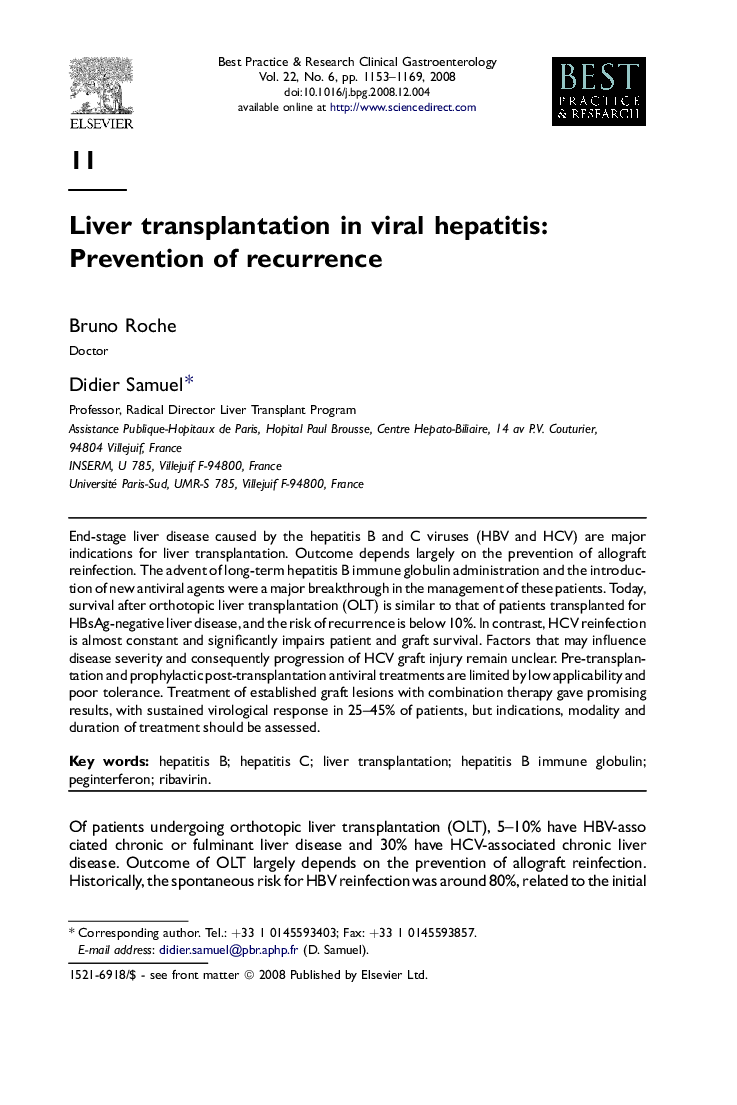| Article ID | Journal | Published Year | Pages | File Type |
|---|---|---|---|---|
| 3254637 | Best Practice & Research Clinical Gastroenterology | 2008 | 17 Pages |
End-stage liver disease caused by the hepatitis B and C viruses (HBV and HCV) are major indications for liver transplantation. Outcome depends largely on the prevention of allograft reinfection. The advent of long-term hepatitis B immune globulin administration and the introduction of new antiviral agents were a major breakthrough in the management of these patients. Today, survival after orthotopic liver transplantation (OLT) is similar to that of patients transplanted for HBsAg-negative liver disease, and the risk of recurrence is below 10%. In contrast, HCV reinfection is almost constant and significantly impairs patient and graft survival. Factors that may influence disease severity and consequently progression of HCV graft injury remain unclear. Pre-transplantation and prophylactic post-transplantation antiviral treatments are limited by low applicability and poor tolerance. Treatment of established graft lesions with combination therapy gave promising results, with sustained virological response in 25–45% of patients, but indications, modality and duration of treatment should be assessed.
